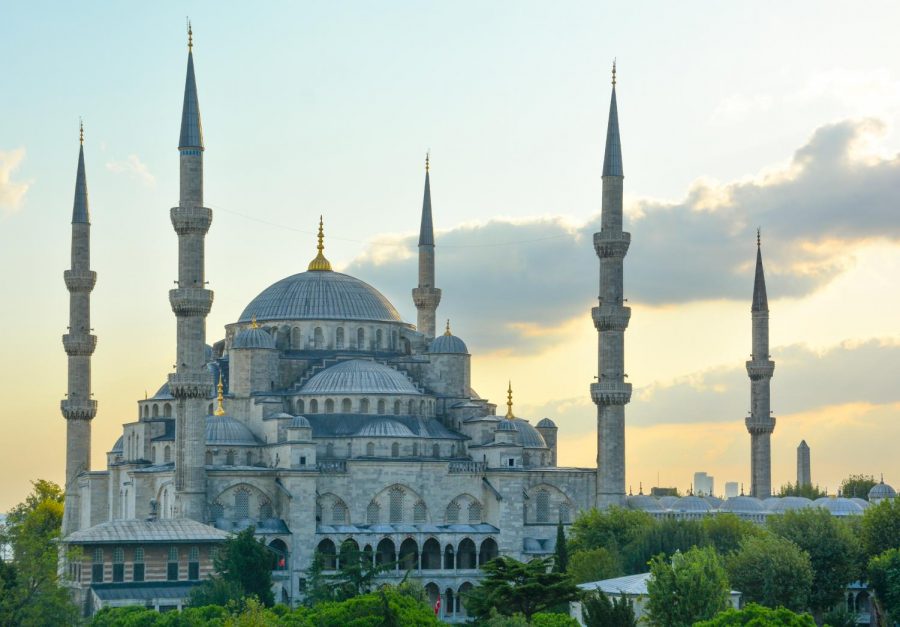Ramadan Kareem!
The Blue Mosque, Istanbul, Turkey.
May 18, 2020
You might have heard of the month of Ramadan before, but don’t really know what it’s all about. This month is full of unique practices and remarkable traditions for Muslims all around the world.
In the month of Ramadan, most Muslims are required to fast every day from sunrise to sunset. Fasting requires putting an end to any food or water entering your body. Although most Muslims are required to fast, there are multiple exceptions. Some of these exceptions include children who have not yet reached puberty, Muslims who aren’t healthy, the elderly, pregnant women, and people who are traveling.
Although some people may think that fasting during this month might be unhealthy for the human body, it is actually proven to provide many health benefits. Fasting increases your brain-derived neurotrophic factor which improves the way your brain functions. In the UAE, one team of cardiologists found that fasting plays a positive effect on a person’s lipid profile, which causes the levels of cholesterol in a person’s body to decrease. Fasting during Ramadan also strengthens your metabolism and burns any harmful toxins that might occur in deposits of fat. “After fasting for the whole month it feels like your body is so clean and healthy,” claims Ali Osseili, who fasts throughout the month of Ramadan.
The Quran, which is the holy book in Islam, mentions that fasting is a way to get closer to God and side with the poor. In Ramadan, deeper spirituality is expected from Muslims. This includes practices like extended prayers and focusing on putting an end to your bad deeds. When fasting all day, worshippers are reminded of the hungry. Each night, when Muslims break their fast, many Mosques around the world offer meals to those in need. Fasting is also a great way to practice patience and allows you to gain self-control. During this month, Muslims practice acts of gratitude like volunteering and helping the poor.
At the end of every day, when the sun sets, Muslims break their fast with a meal called “iftar.” When the holy month of Ramadan is officially over, Muslims celebrate Eid, which is an Islamic holiday that continues for three days. Fatima Mattar, who also fasts during the month of Ramadan states, “Eid is my favorite holiday because you’re celebrating something you’ve worked really hard for throughout the whole entire month.” Typically, children receive new clothes along with money and gifts. Families enjoy the time together, celebrating after all the hard work they have accomplished. Ramadan Kareem!

